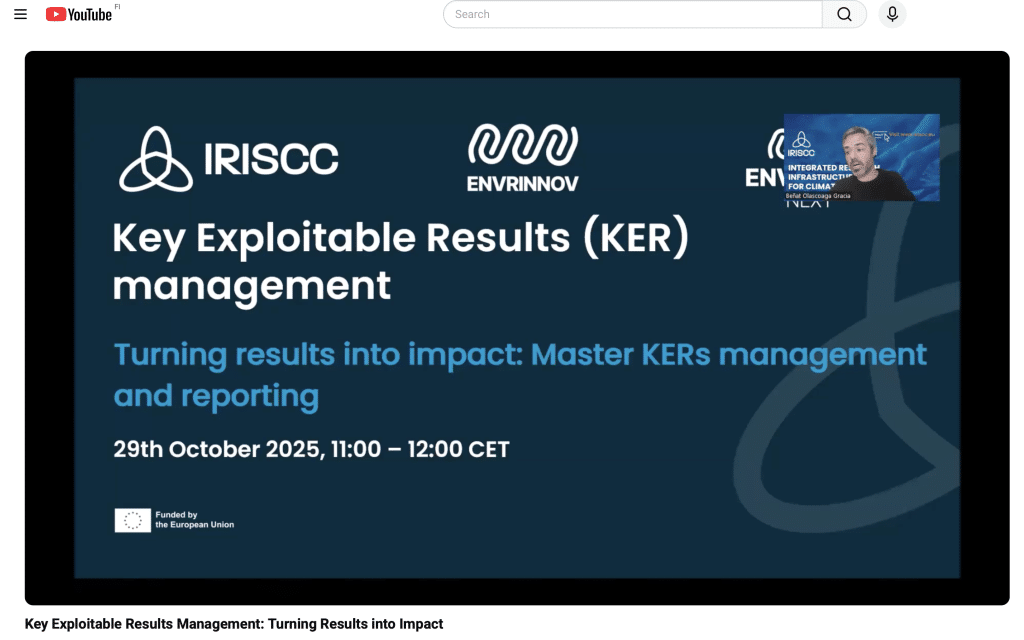IRISCC Project, together with ENVRINNOV and ENVRI-Hub NEXT Projects, hosted an engaging webinar dedicated to helping research infrastructures identify, manage, and exploit Key Exploitable Results (KERs) — a crucial step in transforming research outputs into real-world impact.
Held online on 29th of October 2025, the session gathered members from across the IRISCC and ENVRI communities to explore how to handle project results strategically, from mapping intellectual property (IP) to developing effective exploitation plans. This webinar also set the stage for a hands-on KER workshop that will take place later this year for designated IRISCC KER Champions.





